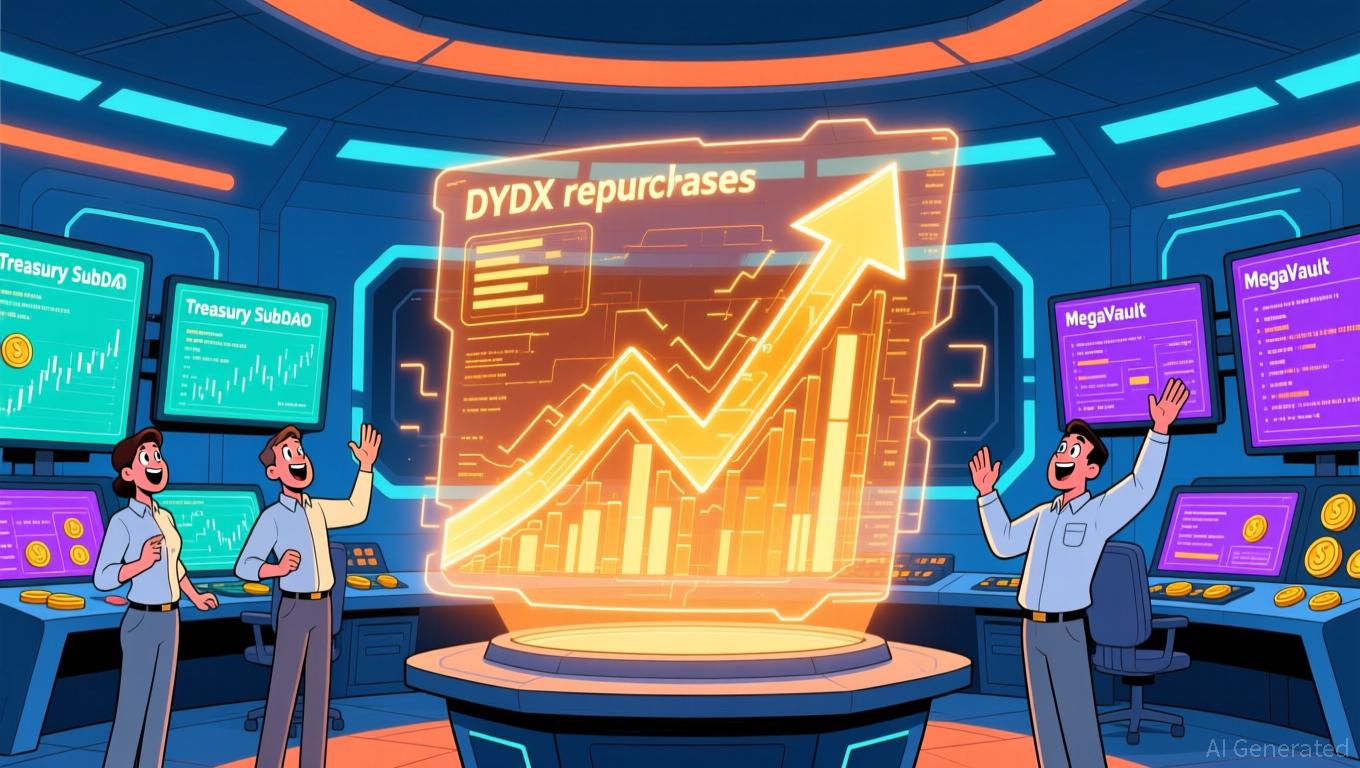Gavin Wood Supports Acurast’s Decentralized Computing Revolution Driven by Smartphones
- Acurast, a smartphone-based decentralized computing project, secured $11M in funding led by Ethereum co-founder Gavin Wood and others. - The platform launched its mainnet on November 17, aiming to transform 150,000 smartphones into secure compute nodes for confidential tasks. - By leveraging hardware-backed security and eliminating intermediaries, Acurast challenges traditional data centers while addressing privacy and environmental concerns. - Despite scalability challenges, the project's 494 million pr
Acurast, a decentralized confidential computing initiative that utilizes smartphones, has secured $11 million in a recent funding round led by
According to founder Alessandro De Carli, Acurast’s concept is based on the idea that billions of smartphones represent “the most thoroughly tested hardware worldwide.” By enabling confidential and verifiable computation on personal devices, the project aims to cut costs and remove middlemen from the data processing chain.

Acurast’s security model is built on hardware-secured key pairs and attestation mechanisms to guarantee tamper-proof execution. While the development team acknowledges the inherent difficulties in ensuring confidentiality on devices they do not control, they contend that their approach reduces risks through comprehensive software verification. De Carli compared these safeguards to those used by banking applications to block unauthorized access, though Acurast’s methods are specifically adapted for mobile environments
This funding round highlights the increasing momentum behind decentralized computing, a field that could make AI and other demanding applications more accessible. Acurast’s strategy reflects a broader movement in distributed ledger technology (DLT), where edge devices are being tapped for computational power. By transforming smartphones—a widespread but often idle resource—into secure computing units, the project seeks to lower entry barriers and address the environmental impact of energy-intensive data centers.
Although there are doubts about whether consumer devices can reliably handle confidential computing, Acurast’s early results point to a promising direction. The network’s current adoption and transaction figures serve as evidence of its potential, though questions about scalability and enduring security remain. Backers like Wood, a leading voice in blockchain, appear to recognize the promise in Acurast’s innovative approach to democratizing hardware and building decentralized infrastructure.
With the mainnet launch on the horizon, Acurast must balance technical reliability with user growth. If successful, the project could redefine how industries manage data privacy and allocate computational resources, especially where trustless execution is essential. For now, the $11 million investment and support from notable investors reflect strong belief in Acurast’s mission to make smartphones the foundation of a decentralized computing network.
Disclaimer: The content of this article solely reflects the author's opinion and does not represent the platform in any capacity. This article is not intended to serve as a reference for making investment decisions.
You may also like
"Digital Privacy Advocate's Rights Reinstated, Underscoring Worldwide Disputes Over Technology Regulation"
- Telegram founder Pavel Durov regains full travel freedom after French judicial restrictions were lifted, following a year of compliance with supervision terms. - French prosecutors continue investigating Telegram for alleged complicity in criminal activity, including child abuse material, with potential 10-year prison charges. - Durov denies allegations, criticizes French procedures as "dystopian," and challenges legal classifications while seeking EU court rulings on digital governance issues. - The cas

dYdX Implements 75% Buyback: Synchronizing Holder Rewards with Platform Growth
- dYdX community approved 75% protocol fee allocation for token buybacks, up from 25%, via a 59.38% voter majority on November 13, 2025. - The revised distribution aims to reduce DYDX supply, enhance scarcity, and align token holder incentives with platform performance through automated, transparent buybacks. - 5% of fees now fund Treasury SubDAO and MegaVault for ecosystem development, balancing supply reduction with staking incentives and research-driven growth. - Analysts highlight this as a DeFi govern

XRP News Today: XRP ETF Debut Marks Transition Toward Utility-Focused Digital Assets as Regulators Approve a New Phase
- Canary Capital's XRPC ETF became the first U.S.-listed spot XRP ETF, trading $26M in 30 minutes on Nasdaq. - The launch followed SEC approval via Form 8-A and reflects growing institutional demand for RippleNet's cross-border payment utility. - XRPC outperformed Solana ETF's $56M first-day volume in pre-launch on-chain activity but faces whale profit-taking and mixed technical indicators. - Regulatory clarity post-July 2025 and XRPC's pure spot structure differentiate it from derivative-based XRPR ETFs,
ZK Nation Empowers Holders to Directly Manage Token Supply
- ZK Nation proposes ZKTokenV3 upgrade with permissionless burn functionality, a key step in programmable supply management. - New features include public token burning, BURNER_ROLE authority, and a 21 billion ZK supply cap enforced during minting. - Upgrade aims to decentralize supply control, enabling holders to directly impact scarcity without centralized governance. - Analysts highlight reduced inflation risks and increased market confidence, with voting active until November 13.